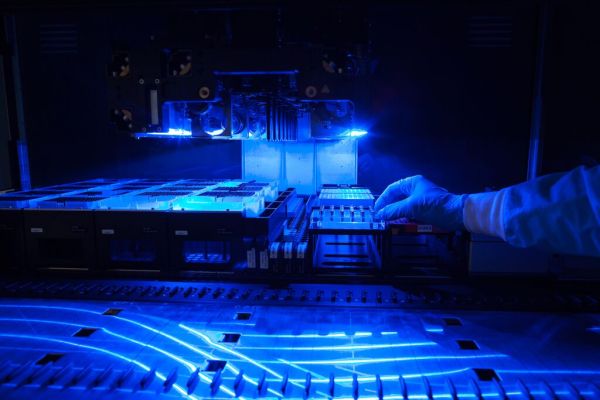Every year, 8 million people around the world die from cancer, and 14 million people find out they have the disease. Guardant Health and Flatiron Health are joining forces in an aim to cut those numbers down using big data and analytics.
The two highly venture-backed oncology startups are creating a database of genomic information, clinical trials, and drug treatment results that will vastly accelerate the development of new cancer drugs.
Flatiron, a cloud-based platform that aggregates data from cancer treatment centers around the world, will provide the structure and all of the clinical trial information for the database.
Guardant’s commercially available blood cancer screening product, Guardant360, will be used to collect data from patients in a much more efficient way than previously possible.
“The whole challenge in cancer is that people respond to therapies initially, and then the cancer evolves and mutates and these drugs stop working,” says Guardant founder Helmy Eltoukhy.
Prior to Guardant360, the only way to access the genomic information about the tumor as it evolves is through repeated biopsies, which are expensive and painful. Eltoukhy says the median cost of a biopsy is $3,700, but the average is $14,000 when you take into account a 20 percent complication rate that generally leads to hospitalization.
As an alternative, Guardant has developed technology to access this information through a blood test. Essentially, as a tumor grows, it’s also shedding dead cells, composed of unique genetic tissue, into the blood stream. With a tube of blood, Guardant can draw a complete genomic picture of an individual’s cancer and how it’s progressing, which makes it easier to target the disease.
What this means for the partnership is that Guardant can determine the results of cancer drug therapy trials in a much more time- and cost-effective manner than was ever possible before.
“It takes about 8.8 years on average for a drug to make its way to the clinic, and 39 percent of clinical trials fail because they can’t find enough patients to enroll in the study,” Eltoukhy says. “Now we can do 100 blood tests, send the kits anywhere in the country, and get the molecular information to match these patients with clinical trials.”
Guardant and Flatiron will be aggregating the results from all of these clinical trials to gain insights around which drugs work best for which patients.
Currently, many patients will use FDA-approved drugs that have not yet been approved for their specific cancer type, Eltoukhy says. Sometimes these therapies are successful, but the lack of clinical trial data means that patients are blindly experimenting with very expensive drugs that may have no effect.
“We’re on the cusp of really amazing things,” Eltoukhy says. “We’ve never generated this much data on cancer patients, and now we have a flashlight into the heart of the disease and we can watch it in real-time.”
Flatiron and Guardant will be working on combining datasets and building out the platform for the remainder of the year, and plan to start discussions with pharmaceutical partners in the first half of 2016.
